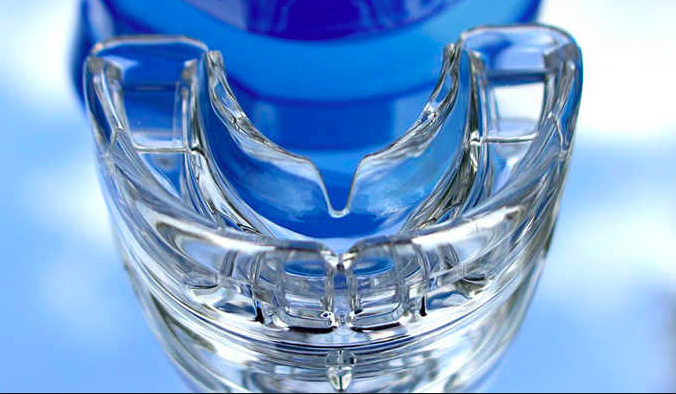Why You Need an Anti-Snoring Mouthpiece

How is a Physical Therapist Different from a Chiropractor?
October 10, 2017
How Therapists Can Help You Relieve Pain Using Acupuncture
February 20, 2018Snoring is a trait that could point to the obstructive sleep apnea disorder. With this disorder, you are bound to encounter disrupted sleeping patterns and suffer low blood oxygen levels in your body. With repeated cycles of decreased oxygen in the body, come rather serious cardiovascular-related health problems.
In addition, you would suffer from excessive daytime drowsiness, loss of concentration, and depression. It is thus important to identify the problem behind snoring and treat it.
The Sleep Apnea Problem
When obstructive sleep apnea strikes, your tongue gets sucked against the back of your throat. This blocks your upper airway, stopping airflow. Once your brain oxygen level falls low enough, you awaken partially, the obstruction in your throat clears, and airflow commences once more, often with a loud gasp.
Obstructive Sleep Apnea Diagnosis
The treatment process for obstructive sleep apnea begins with your recognition of the symptoms you are going through and subsequently seeking appropriate medical consultation. Maxillofacial and oral surgical consultants will offer you the best consultation and treatment regimes.
The consultant will make a thorough analysis of your detailed medical history in addition to assessing your anatomic relationships within your maxillofacial region. With the assistance of skull x-ray analysis, or cephalometric x-ray, your medical consultant will also ascertain the level of your obstruction.
The consultant may also take you through a nasopharyngeal examination using a flexible fiber-optic camera. Ultimately, in confirmation of the level of your cardiovascular compromise and low oxygenation levels, your consultant could recommend an overnight monitor examination.
Treatment Options
One of the best, cheapest, and easiest to administer option, in the treatment and control of obstructive sleep apnea, rests in an anti-snoring mouthpiece or oral appliances. Oral appliances that include mandibular advancements or repositioning devices are widely used. They are considered to be among the most effective solution in clinical practice against this malady.
This oral appliance, or anti-snoring mouthpiece, work through making two things happen. First, it makes your lower jaw, or mandible, protrude. Second, it assists your lower jaw to stabilize. The result is an airway that stays open while you are asleep.
Getting the best treatment
Proper diagnosis and treatment is essential in keeping this disorder under control. This is only possible if you find a good, qualified oral surgeon, Ear Nose, and Throat (ENT) specialist, sleep specialist, or dentist. Ensure that the doctor you visit is qualified, licensed and insured. Should you suffer from mild to moderate obstructive sleep apnea, you can use an oral appliance since it’s a much more comfortable option and one that comes with a higher compliance rate. Your best options include those covered by anti-snoring mouthpiece reviews at www.ElevatingSeniors.com.
This appliance is not recommended if your obstructive sleep apnea is severe. If you suffer from a severe bout of obstructive sleep apnea, your best course would be a PAP therapy or C-PAP. However, should you be intolerant to C-PAP, you can use an anti-snoring mouthpiece rather than remain without a treatment option.
Conclusion
Obstructive Sleep Apnea, whose biggest sign is snoring in your sleep, is a serious health condition. It calls for careful medical attention and treatment. Quite a number of health plans out there will give you coverage for its diagnosis and treatment. If you have symptoms that point to it, or you snore severely, visit a doctor for proper diagnosis and treatment.


